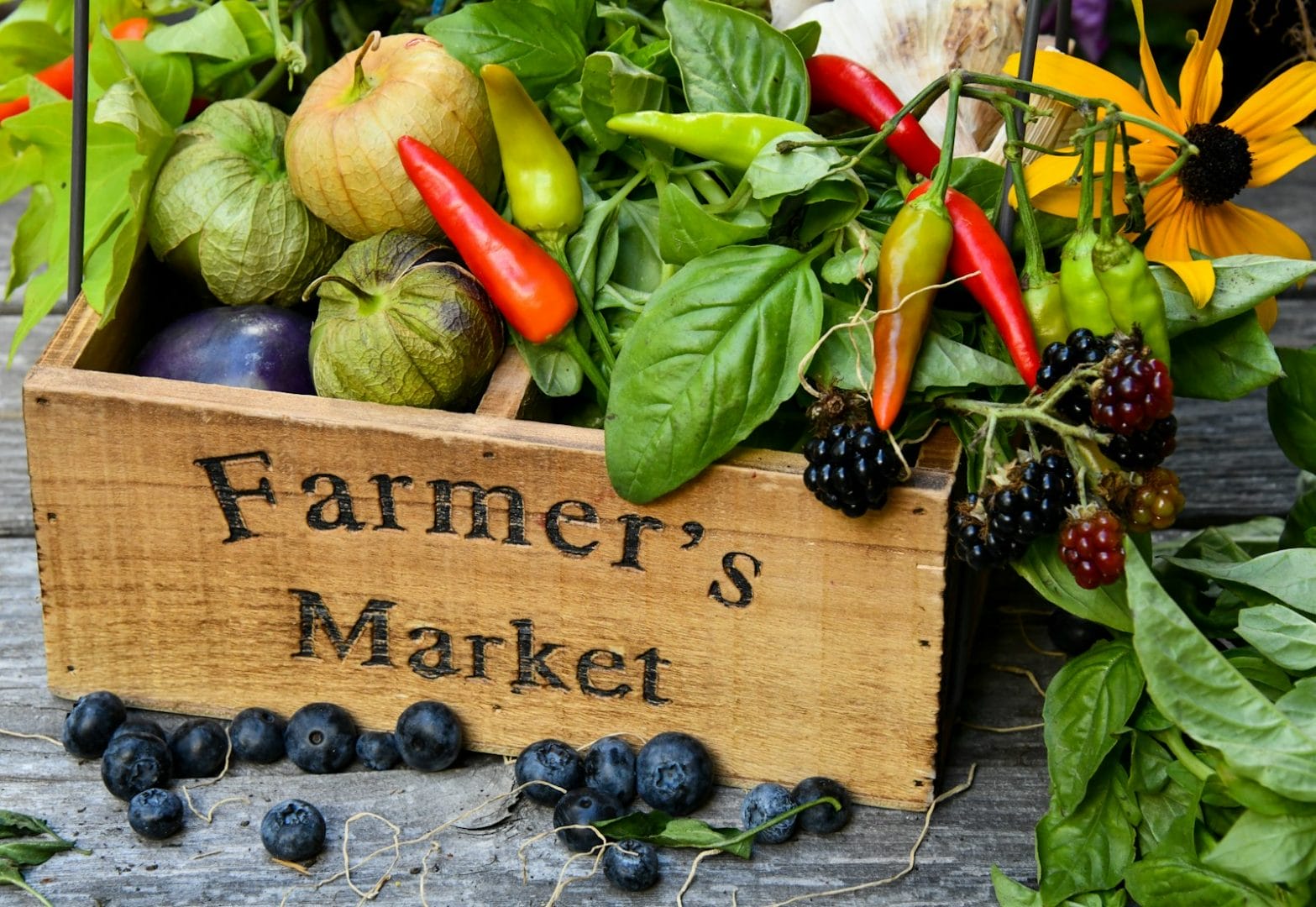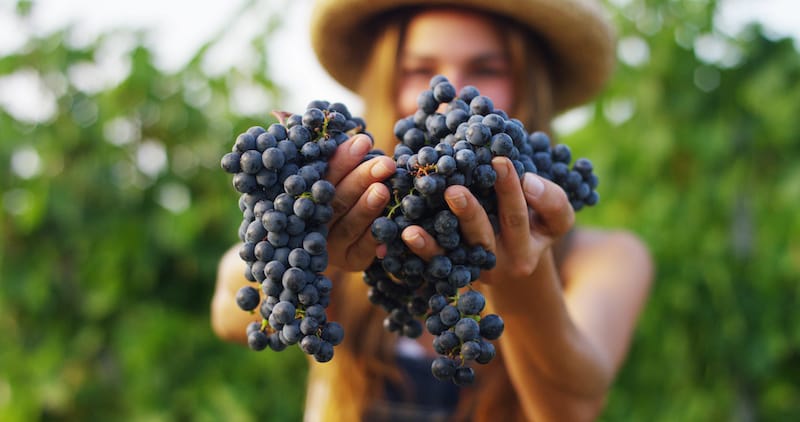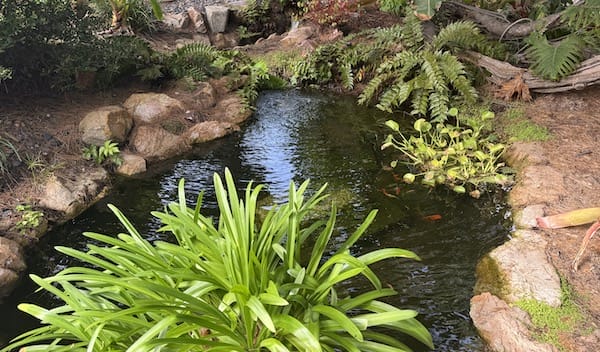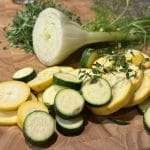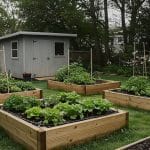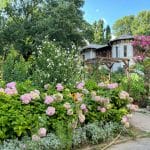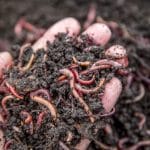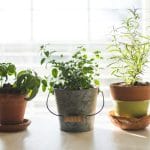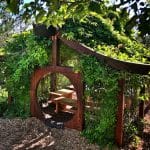Which Lettuce Grow Farmstand Is Right for You?
Farm To Table Growing Guides Hydroponics
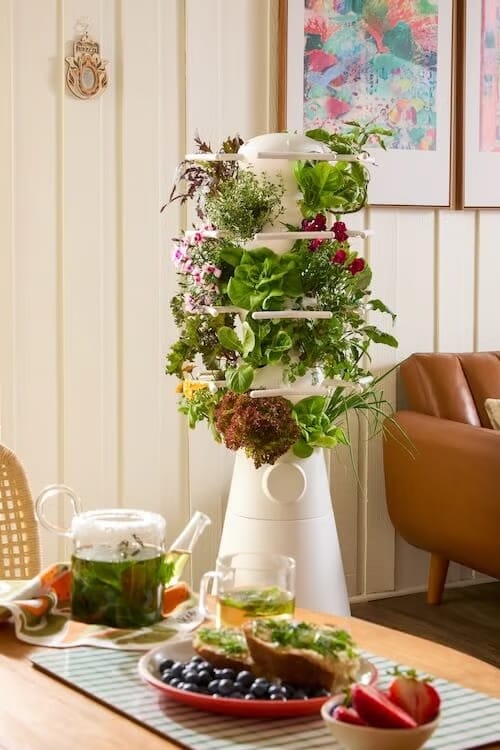
I’ve had my hands in just about every kind of growing system at this point — soil, hydroponics, worm bins, even a homemade rig that barely held together with zip ties. Some ideas worked, some ended up in the compost pile.
The Lettuce Grow Farmstand is one of those. Simple, self-watering, and about as close as you can get to fresh greens without bending over a garden bed. The tricky part? Deciding which model fits your life best. They’ve got a few options — Outdoor Farmstand, Indoor Farmstand, and the Farmstand Nook — and at first, they all look pretty similar. But once you start thinking about space, light, and what you actually want to grow, the differences matter.
Let’s break it down the way I wish someone had for me: no jargon, no sales pitch, just straight talk.
The Farmstand: The Flagship Workhorse
This is the one I think of as the “classic.” It’s flexible enough to live outside if your weather runs between about 40°F and 100°F, but you can also run it indoors with the company’s Glow Rings®.
The best part? It grows with you. You can start small with 12 plants and scale it all the way up to 36 just by adding more levels. That’s a lot of salads, smoothies, and stir-fry greens. Out in the sun, it’ll handle bigger crops too — cauliflower, zucchini, even eggplant. Indoors, it’s a steady year-round lettuce-and-herb machine.
Specs in plain English:
- Holds 12 to 36 plants, depending on size
- Needs about 4 square feet (picture a bistro table)
- Height runs from 4’6” to 6’7”
- Water tank: 20 gallons (top off every week or two)
- Weight: just 18 pounds empty
Why it matters: If you’ve got a patio, deck, or yard with at least six hours of sun, this one feels the most “garden-like.” You still get the hands-on fun of tending plants, but without the fuss of soil and weeds. Indoors, it’s a bigger presence — tall, glowing, kind of like a piece of living furniture.
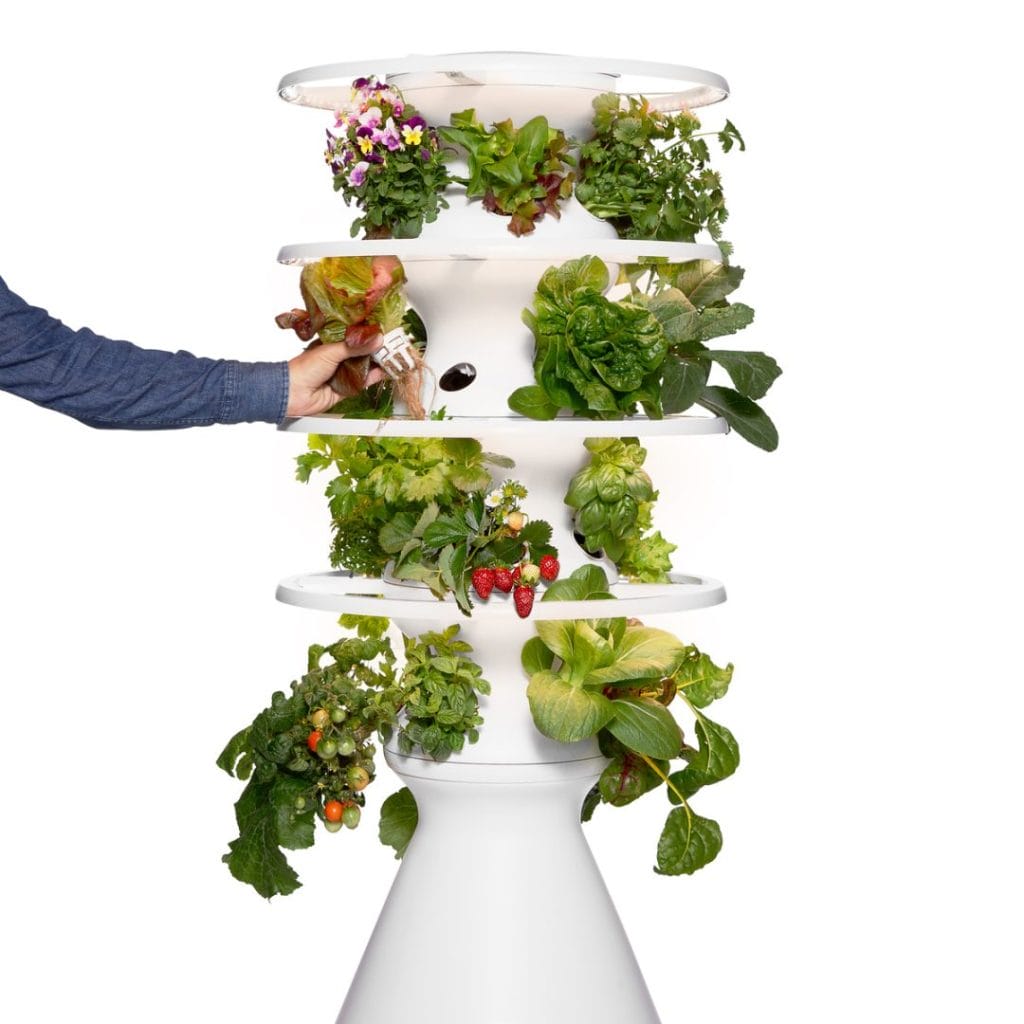
The Indoor Hydroponic Farmstand: Same Build, Year-Round Glow
If the flagship is the outdoor workhorse, this is its indoor twin. Same footprint, same heights, same plant capacity (18–36), but it comes with grow lights built in. That means you can’t tuck it against a wall and harvest basil in December without giving daylight a second thought.
Specs in plain English:
- Holds 18–36 plants
- Same 4-square-foot footprint, same heights
- 20-gallon tank
- Needs a GFCI outlet (like the kind in kitchens and bathrooms)
Why it matters: I’ve lived in places where winter shuts down the garden for months, and having fresh greens inside makes a world of difference. The glow from the lights isn’t for everyone — I wouldn’t stick it in a bedroom — but in a living room or kitchen corner, it’s not bad. And once you’ve clipped kale in February, you forget about the glow anyway.
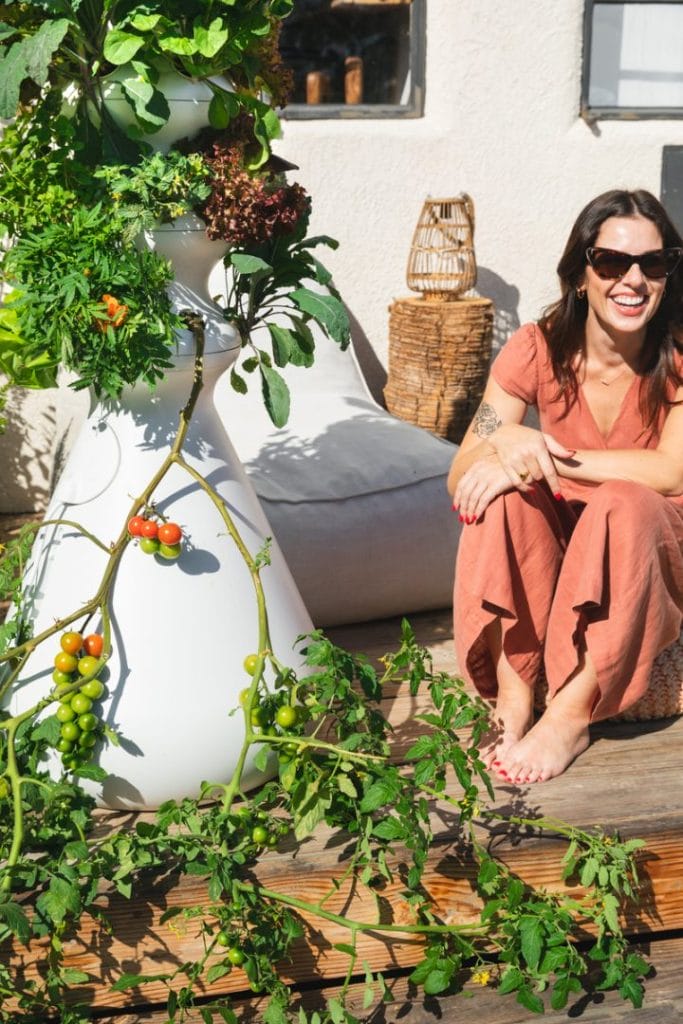
Outdoor Farmstand: Best for patios, decks, and backyard gardeners
If you have an outdoor spot with sun and space, the Outdoor Farmstand is the perfect choice. It holds 18–36 plants and requires minimal maintenance once the water and nutrients are topped up. I’d say it’s a good fit if:
- You have a patio, deck, or small yard and want a steady supply of fresh greens.
- You don’t mind stepping outside to harvest.
- You want the most extensive variety of crops, since natural sunlight supports everything from leafy greens to tomatoes and peppers.
It’s also the most “farm-like” experience, which I think appeals to folks who want that garden feel without the need for soil.
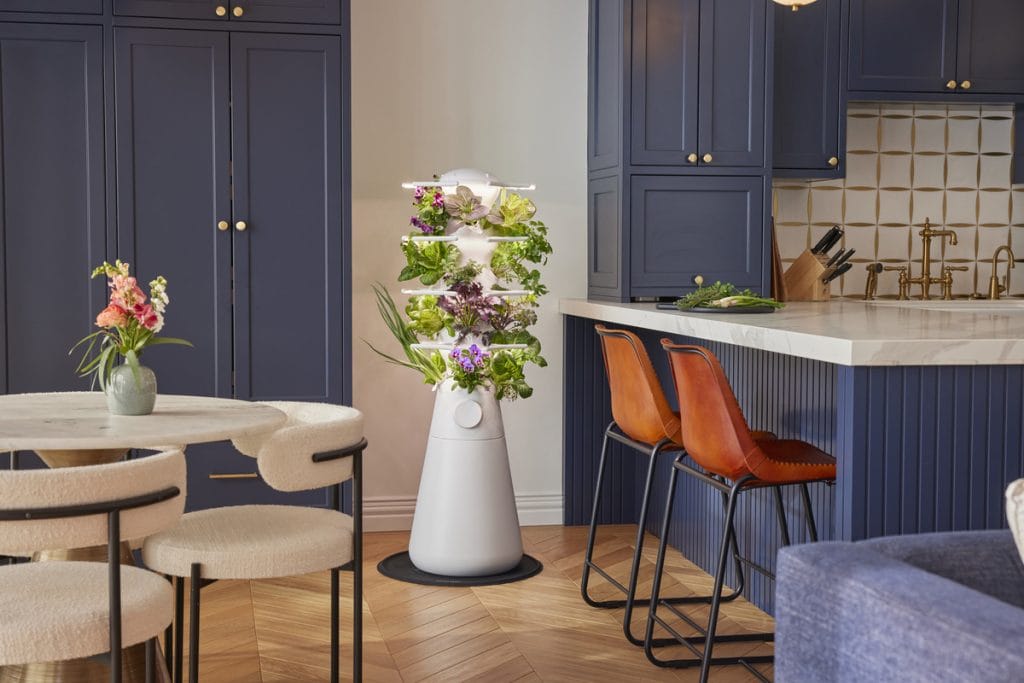
The Farmstand Nook: Small But Mighty
Now, the Nook is a different beast. It was built for small spaces — apartments, tight kitchens, tucked-away corners. It’s slimmer and maxes out at 20 plants, which still yields a substantial amount of lettuce on your plate.
It’s an indoor hydroponic system, featuring integrated LED lights and a streamlined tank. It doesn’t take over the room, doesn’t demand much attention, and quietly cranks out greens, herbs, and a few smaller vegetables.
Specs in plain English:
- Holds up to 20 plants
- Indoor use only
- 20-gallon tank
- Needs a GFCI outlet
- Does best with at least 6 hours of intense light (or relies on the LEDs)
Why it matters: If you’re new to hydroponics or short on space, this one’s friendly. It doesn’t overwhelm. I think of it like a kitchen herb pot, just supercharged. Perfect for quick harvests — spinach for a smoothie, basil for pasta, a handful of lettuce for lunch.
Side-by-Side Snapshot
| Model | Best For | Plant Capacity | Height | Footprint | Power Needs | Light Source |
|---|---|---|---|---|---|---|
| Farmstand (Flagship) | Patios, decks, flexible indoor/outdoor use | 12–36 | 4’6”–6’7” | 4 sq. ft. (22” dia.) | Glow Rings® if indoors | Sun outdoors; Glow Rings® indoors |
| Indoor Farmstand | Year-round indoor growers | 18–36 | 4’6”–6’7” | 4 sq. ft. (22” dia.) | GFCI outlet | Built-in grow lights |
| Farmstand Nook | Small spaces, kitchens, city living | 20 | Compact | Just under 4 sq. ft. | GFCI outlet | Built-in LEDs |
Which One Fits You?
Lettuce Grow makes growing easy. In just a few square feet a vertical garden will let you grow plants that usually need a whole bed, and when the seedlings arrive they’re already doing the hard part — you drop them into the water reservoir, add the plant food that comes with it, keep an eye on the pH level, and top the reservoir weekly. It’s about 15 minutes of fuss if you actually poke around. Between how it uses water and some Lettuce Grow offers, things tend to cruise along and be ready to harvest before you overthink it — learned that the hard way.
- If you have a sunny outdoor space and want the widest range of crops, opt for the Farmstand flagship.
- If you’re determined to grow no matter the season, the Indoor Farmstand is your best bet.
- If you’re in a tight space and mostly want greens and herbs, the Nook keeps it simple.
I’d start small unless you know you’ll eat everything it produces. These systems can crank out a surprising amount of food. The good news is, they’re modular. You can add more levels later if you get hooked — and trust me, clipping fresh lettuce from the stem beats grabbing a soggy clamshell at the store every single time.
FAQs About Lettuce Grow Farmstands
+ Can you grow year-round with a Farmstand?
+ How often do you refill the water tank?
+ What kinds of plants can you grow?
The Nook is better suited to smaller crops.
+ How much space do you need?
That’s the long and short of it. Three systems, all built on the same backbone, just different ways of fitting into your home and your routine. For me, it comes down to sunlight and space — two things every gardener wrestles with, whether we’re planting in soil or in a sleek hydroponic tower like these.
Share this post
Table of Contents
- Having a Hard Time Knowing Which Farmstand To Choose From?
- The Farmstand: The Flagship Workhorse
- The Indoor Hydroponic Farmstand: Same Build, Year-Round Glow
- Outdoor Farmstand: Best for patios, decks, and backyard gardeners
- The Farmstand Nook: Small But Mighty
- Side-by-Side Snapshot
- Which One Fits You?
- FAQs About Lettuce Grow Farmstands
Interactive Guides
All categories
More From The Garden
Disclosure: This post may contain affiliate links. That means if you click and buy, The Bright Garden may earn a small commission, at no extra cost to you. We only recommend products we’ve vetted and believe will benefit our readers.

